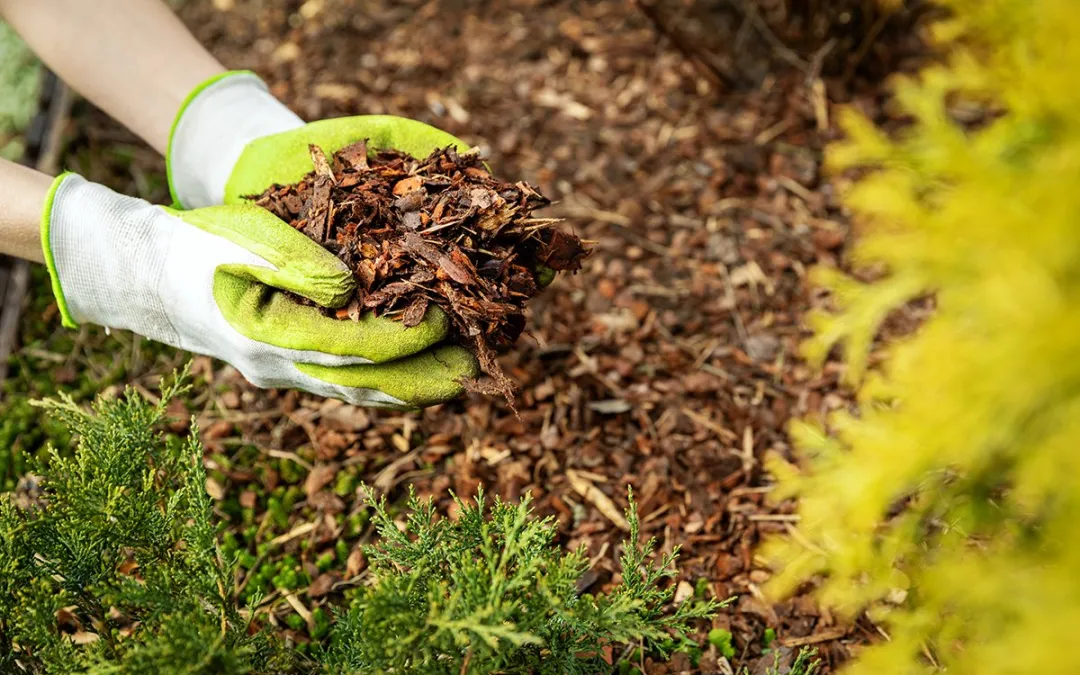Mulching is one of the simplest and most effective gardening practices that can have a profound impact on plant health. Whether you’re growing vegetables, flowers, or shrubs, mulching helps maintain a healthy garden by improving soil quality, conserving moisture, and reducing weed growth. Here’s how mulching benefits your garden:
1. Moisture Retention: Mulch acts as a protective barrier, helping the soil retain moisture by reducing evaporation. This is especially beneficial during hot, dry periods when your plants need consistent moisture to thrive. By keeping the soil moist, mulch helps plants establish strong root systems and reduces the need for frequent watering.
2. Weed Control: Weeds compete with your plants for nutrients, water, and sunlight. Mulching helps suppress weed growth by blocking light from reaching the soil, which prevents weed seeds from germinating. A thick layer of mulch can keep your garden free from weeds, reducing the need for chemical herbicides.
3. Soil Temperature Regulation: Mulch helps regulate soil temperature by keeping the soil cooler during the summer heat and warmer during the winter. In cold climates, mulching in the fall can protect plant roots from freezing temperatures, while in hot climates, it prevents the soil from becoming too hot and drying out. This temperature regulation promotes healthy root growth.
4. Improves Soil Structure: Organic mulches such as straw, wood chips, or grass clippings break down over time, enriching the soil with organic matter. As the mulch decomposes, it adds nutrients to the soil, improving its structure and fertility. This makes it easier for plant roots to penetrate the soil and access nutrients.
5. Erosion Control: Mulching helps prevent soil erosion caused by heavy rains. By acting as a protective layer, mulch reduces the impact of raindrops on the soil surface and helps retain the soil in place. This is especially important in areas with sloped landscapes or heavy rainfall.
6. Aesthetic Appeal: Mulch can also enhance the appearance of your garden. A well-mulched garden looks tidy, uniform, and professional. It can complement the colors and textures of your plants, creating a visually appealing landscape.
Types of Mulch: There are two main types of mulch: organic and inorganic. Organic mulches, such as bark, wood chips, straw, and leaves, break down over time and improve soil quality. Inorganic mulches, such as gravel, rubber, or plastic, don’t break down but can be used for decorative purposes or in areas where you need long-lasting coverage.
Mulching is an essential practice for healthy gardening. By using the right type of mulch and applying it correctly, you can create a thriving garden with minimal effort.
4. Top Tools Every Gardener Should Own
Gardening requires the right tools to make tasks easier, more efficient, and more enjoyable. Whether you’re a beginner or an experienced gardener, having the essential tools on hand can help you maintain your garden with ease. Here are the top tools every gardener should own:
1. Hand Trowel: A hand trowel is a versatile tool used for digging small holes, planting, and transplanting. Its compact size makes it perfect for working in tight spaces, and it’s a must-have for any gardener.
2. Pruning Shears: Pruning shears, or secateurs, are essential for trimming dead or overgrown branches and stems. They help you maintain the shape of your plants, encourage healthy growth, and remove diseased parts of your plants to prevent the spread of illness.
3. Garden Hoe: A garden hoe is a valuable tool for cultivating soil, removing weeds, and preparing garden beds. It’s especially useful for larger spaces and vegetable gardens, as it helps break up compacted soil and create furrows for planting.
4. Watering Can or Hose: Watering your garden is essential, and having a good-quality watering can or hose is key to providing your plants with the right amount of water. Look for a hose with adjustable nozzles or a watering can with a long spout for easy reach and controlled watering.
5. Garden Fork: A garden fork is great for aerating soil, turning compost, and digging into heavy or rocky soil. It’s particularly useful for working with clay or compacted soil and helps loosen up the earth to promote healthy root growth.
6. Garden Gloves: Protect your hands from cuts, blisters, and dirt with a durable pair of garden gloves. Choose gloves that are comfortable, breathable, and offer enough protection for tasks like pruning, weeding, and digging.
7. Wheelbarrow: A wheelbarrow is an essential tool for transporting soil, compost, plants, and other materials around the garden. It saves time and energy, especially when you need to move heavy loads.
8. Rake: A rake is necessary for gathering leaves, grass clippings, and other garden debris. It also helps level the soil and spread mulch evenly over garden beds.
9. Spade: A spade is a shovel-like tool used for digging and cutting through soil. It’s particularly useful for digging holes for plants or edging garden beds.
10. Lawn Mower: If you have a lawn, a good-quality lawn mower is essential for keeping the grass neat and healthy. Look for a mower that is easy to maneuver and suits the size of your lawn.
Having these essential gardening tools will make your gardening tasks more efficient, comfortable, and enjoyable. Whether you’re growing vegetables, flowers, or herbs, these tools will help you take care of your garden with ease.
